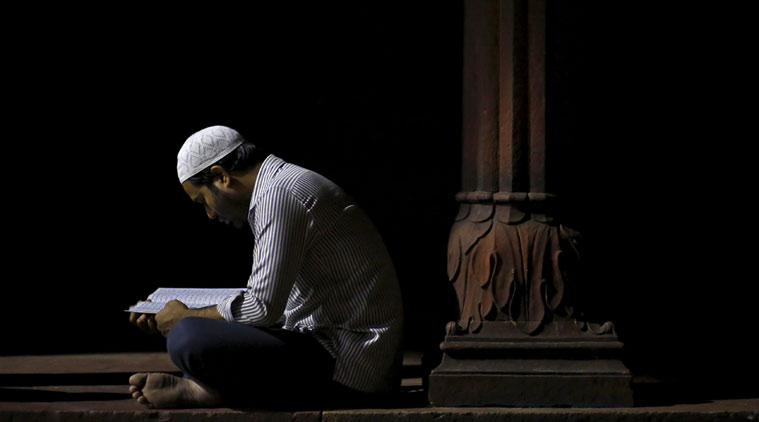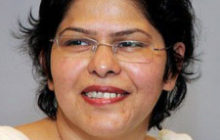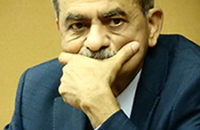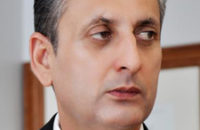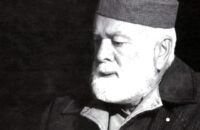By Khaled Ahmed
Nation-states inhabited by Muslim majorities tend to be permanently wobbly. These days, those that got fired by the idea of democracy in 2011 are in crisis. Egypt, Syria, Iraq and Libya were supposed to go democratic after liberation from heir dictatorships. Muslim states in fact stay stable for many years under dictators, kings and Iran-like Islamic authoritarianism.
Why should the idea of democracy make these states unstable? Because they think Islam or its sharia is essentially democratic. The Shah of Iran ruled a prosperous state that strove to live peacefully with the Arab sheikhdoms across the Gulf. After the advent of democracy (constitution, election, elected legislature) Iran carried out the duty of jihad till, under Ayatollah Khamenei, it buckled and accepted peace under the doctrine of narmish-e- qaharmananan (heroic flexibility), an oil-producing giant rendered poor with its non-Muslim or apostatised minorities in extreme suffering.
Iran’s internal order is better than Pakistan’s despite the fact that, like Pakistan, it faced two invasions of Afghanistan followed by Talibanisation during which it fought a proxy sectarian war against Pakistan. On the other hand, democratic Pakistan became permanently unstable with governments dismissed and leaders assassinated in routine.
The trajectory of Pakistan may be the framework in which Muslim states are today acting in a pattern: they remain stable until they begin to think of democracy. In 2011, the Egyptians in Tahrir Square carried placards saying na’am lish-sharia (yes to sharia) clearly indicating they equated Islamic sharia with democracy. At once, the non-Muslim Copts, who form 20 percent of Egypt’s population, began to fear for their lives. They don’t ever say it but Muslims want to see non-Muslims as somehow “separate”. Pakistan’s flag has a white patch separating them from the green section meant for Muslims.
In Syria, traditionally, there were many religions, but a majority of Sunnis were being ruled over by a dictator belonging to the Alawite sect which the Sunnis didn’t even consider truly Muslim. The inspiration of democracy required that there be elections and a government chosen by the people of Syria. Compared to the Alawite rulers, who are aligned with Iran and Shia Iraq, the Sunnis of Syria are conservative and would treat the Alawites as non-Muslims after coming to power. The Alawites, under Alawite dictator- President Asad, knew this and would not allow democracy in the country, knowing they would all be put to the sword as apostates.
In Tunisia, the ouster of the dictator did indeed lead to a democratic transition, but Tunisia lost stability and became internally chaotic with salafi factions ruling the street. Now it is a failed democracy contributing the largest number of youths to the armies of Islamic State in Syria. In Egypt, General Sisi has prevented this kind of chaos from taking over by preventing the Muslim Brotherhood from ruling “democratically” after winning elections.
My argument is that democracy should be given a chance even though it may start in a disorderly fashion with extreme suffering inflicted on the minorities. But I secretly realise that a Muslim democracy will mutate into a despotic order in which certain sections of the population will continue to suffer for decades till the state suffers defeat or is brought to its knees by its jihadi activities. In all cases, there is no chance that its non-Muslims – or people designated as such – will fare better after the surviving Muslim state has suffered a reversal.
Compared to what the “republic” of Iran has done to itself, the Arab kingdoms and sheikhdoms appear to be more stable and more viable. In fact, if you look closely at the Gulf “market states”, they appear to be the only model which the Muslims might survive by adopting. The market state can’t afford to be too oppressive and has to keep its doors open to be attractive economically. In The Shield of Achilles: War, Peace and the Course of History, (Allen Lane 2002), Philip Bobbit writes: “The market-state assesses its economic success or failure by its society’s ability to secure more and better goods and services…” (p.229).
Pakistan’s trajectory is instructive because it foreshadowed the Muslim crisis of 2011. Three days before Independence, founder Jinnah thought he should define the kind of state he would like Pakistan to be as a new democratic republic. His 11 August “secular” speech is as good a paraphrase of John Locke as any you might see.
Jinnah’s statement about secular Pakistan was immediately buried by his shocked Muslim League lieutenants. After his death Pakistan’s Constituent Assembly produced the Objectives Resolution pledging the establishment of an Islamic Republic on the presumption that Islam was nothing if not democratic. After that the trajectory towards hard Islam began, passing through the Raj afterglow that pushed back the maltreatment of the non-Muslims although some Hindu members of the Assembly left Pakistan in 1949 sensing that their status will become degraded as Islam took hold. Of course “jiziya” was out of the question but its memory remained buried in the Muslim subconscious. In the ripeness of time such laws as the Law of Evidence, Zakat, and Blasphemy discriminated against or targeted the non-Muslim Pakistani; and Pakistan’s ministers began to announce in parliament that they were Muslim first, not Pakistani first.

